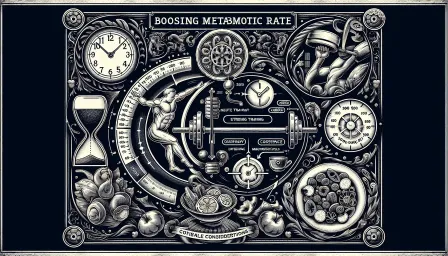Ultimate Guide to Intermittent Fasting for Beginners: Tips and Benefits

Discover the ultimate guide to intermittent fasting for beginners, including expert tips and benefits. Perfect for those new to the practice and looking to improve their health.
Intermittent fasting has gained popularity as a dietary approach that offers numerous health benefits. For beginners, understanding the basics and knowing the best practices can ease the transition and maximize the outcomes. This guide delves into intermittent fasting for beginners, exploring the methods, tips, and benefits to help you make an informed decision.
What is Intermittent Fasting?
Intermittent fasting (IF) is an eating pattern that alternates between periods of eating and fasting. Unlike traditional diets that focus on what you eat, intermittent fasting emphasizes when you eat. This method can lead to various health benefits, including weight loss, improved metabolic health, and increased longevity.
Popular Intermittent Fasting Methods
1. The 16/8 Method
One of the most popular IF methods, the 16/8 method, involves fasting for 16 hours each day and eating during an 8-hour window. Typically, practitioners choose an eating window from 12 PM to 8 PM, skipping breakfast and having lunch and dinner instead.
2. The 5:2 Diet
In the 5:2 diet, individuals eat normally for five days of the week and restrict calorie intake to 500–600 calories on the other two days. This approach can be more flexible and easier to maintain for some people.
3. Eat-Stop-Eat
This method involves fasting for 24 hours once or twice a week. For example, you might fast from dinner one day until dinner the next day. It's known to be a more challenging approach but offers significant benefits.
4. Alternate-Day Fasting
Alternate-day fasting requires alternating between days of normal eating and days of fasting or limited caloric intake (approximately 500 calories). It is a more intense regimen but can lead to rapid weight loss.
Benefits of Intermittent Fasting
1. Weight Loss
Intermittent fasting can promote weight loss by reducing calorie intake and increasing metabolic rate. It allows the body to use stored fat for energy during fasting periods.
2. Improved Metabolic Health
Regular intermittent fasting can improve various metabolic markers such as insulin sensitivity, cholesterol levels, and inflammatory markers, reducing the risk of chronic diseases.
3. Cellular Repair and Longevity
Fasting triggers autophagy, a cellular repair process that removes damaged cells and regenerates new ones. This can contribute to increased longevity and reduced risk of diseases like Alzheimer's.
4. Enhanced Brain Function
Intermittent fasting can improve brain function by increasing the production of brain-derived neurotrophic factor (BDNF) and reducing oxidative stress and inflammation in the brain.
Tips for Beginners
Start Slowly
If you're new to intermittent fasting, ease into it by gradually increasing fasting periods. For example, start with a 12-hour fast and slowly extend it to the desired length.
Stay Hydrated
Drink plenty of water during fasting periods to stay hydrated. Herbal teas and black coffee are also acceptable and can help curb hunger pangs.
Prioritize Nutrition
During eating windows, focus on nutrient-dense foods, such as lean proteins, whole grains, fruits, and vegetables. Avoid processed foods and sugary drinks to maximize health benefits.
Listen to Your Body
Pay attention to how your body responds to fasting. If you feel unwell or overly fatigued, consider adjusting your fasting schedule or consulting with a healthcare professional.
Stay Consistent
Consistency is key to seeing results with intermittent fasting. Stick to your chosen method for several weeks to allow your body to adapt and experience the full benefits.
Common Challenges and Solutions
Hunger Pangs
Hunger is a common challenge when starting intermittent fasting. To manage this, drink water, distracting yourself with activities, or consuming low-calorie beverages can help.
Social Situations
Social gatherings can make intermittent fasting challenging. Plan your eating windows around events, and don't be afraid to explain your dietary choice to friends and family.
Energy Slumps
Initial energy slumps are normal as your body adapts to a new eating pattern. Make sure you're getting enough sleep and opting for nutrient-rich foods during your eating periods.
Is Intermittent Fasting Right for You?
Intermittent fasting can offer numerous benefits, but it may not be suitable for everyone. Individuals with certain medical conditions, pregnant or breastfeeding women, and those with a history of eating disorders should consult a healthcare professional before starting any fasting regimen. Ultimately, the best approach is one that fits your lifestyle and health needs.
Conclusion
Intermittent fasting for beginners can be an effective and sustainable way to improve health and achieve weight loss goals. By understanding the different methods, benefits, and challenges, you can make a well-informed decision. As with any dietary change, it is essential to listen to your body and seek professional advice if needed. Consistency, patience, and a focus on overall nutrition are key to success in intermittent fasting.



























